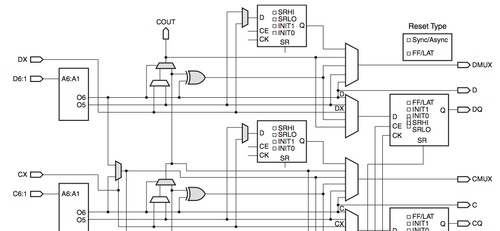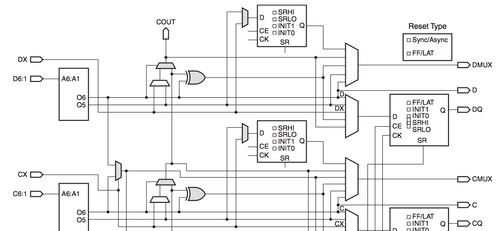Here's Your Chance to Learn About the Secrets of FPGAs
January 8, 2015

The ‘secrets’ (or maybe ‘secret sauce’ for the epicureans out there) that programmable logic vendors use to create these amazing devices are typically not discussed in much detail by the manufacturers. But if you understand them you can typically figure out why your devices are performing the way they do.
In last week's blog I described the variety of courses on programmable logic and MCUs available via the Design News Continuing Education Center (CEC) sponsored by Digi-Key. If these topics are of interest to you, you might be interested in my upcoming course Jan 12-16 titled “Programmable Logic- How do they do that?” available here.
Programmable Logic -- How Do They Do That?
Register today!
The course goes for the entire week and is about an hour a day (30 minutes of lecture and 30 minutes of student questions answered via a chat function). The first class is an introduction to the underlying technology used to implement the configurable portion of a typical FPGA, usually a Look-Up Table or LUT. You may wonder why these elements have become so ubiquitous and this class will provide some insight into why they are used in just about every mainstream device.

The second class covers the rest of the programmable fabric-- the LUTs, routing switches, and IOs, showing how all the configurable elements are combined together to provide an efficient logic implementation network. The third class covers the specialized functions that are embedded within the more generic LUTs, interconnect and IOs to improve efficiency. Typically ‘hardened’ logic is at least 10 times as efficient as programmable implementations so it makes sense to add some dedicated logic if it is used in just about every application. The trick is to identify these common functions.
One of the most influential hardened blocks offered on modern FPGAs is the microcontroller unit, or MCU. The fourth class will cover the way in which processors have been added to FPGAs and some of the tricks manufacturers have had to use to easily interface these blocks with the programmable fabric. It’s not as simple as you might think and we will look at the future evolution of these blocks to see some innovations we might expect over the next few years.
The final class will cover the software side of programmable logic technology. It will cover place and route, synthesis, coding processors, and even debugging. If you ever wondered why your logic didn't quite turn out as you expected, this class may shed some light on this sometimes perplexing problem (or feature depending on your point of view).
Check out this course and I’m sure you will come away with a new understanding of some of the mysteries of programmable logic that have up until now, befuddled and confounded you. I hope to see you in class starting on the 12th. Don't forget you can also listen via the archive if you can’t make it live.
Design engineers and professionals, the West Coast's most important design, innovation, and manufacturing event, Pacific Design & Manufacturing, is taking place in Anaheim, Feb. 10-12, 2015. A Design News event, Pacific Design & Manufacturing is your chance to meet qualified suppliers, get hands-on access to the latest technologies, be informed from a world-class conference program, and expand your network. (You might even meet a Design News editor.) Learn more about Pacific Design & Manufacturing here.
About the Author(s)
You May Also Like



